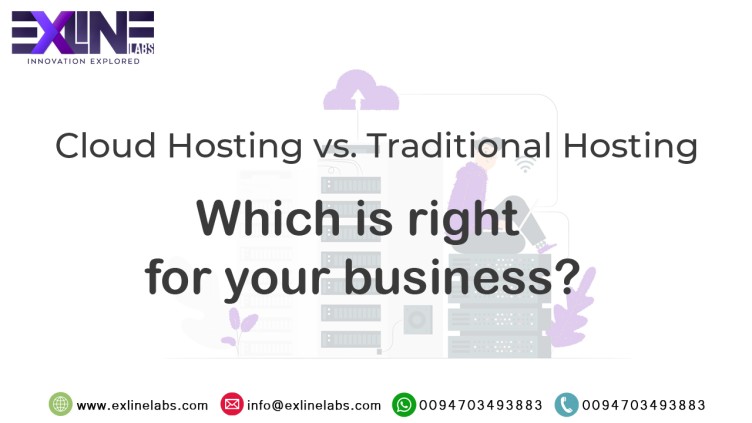In today’s digital age, businesses of all sizes are reliant on technology to succeed. As a result, choosing the right hosting solution is crucial for any business that wants to establish an online presence. There are two primary hosting options available: cloud hosting and traditional hosting. In this article, we’ll explore the differences between these two options and help you determine which one is right for your business.
Cloud Hosting
Cloud hosting is a relatively new technology that has gained popularity in recent years. With cloud hosting, your website is hosted on a network of servers that work together to ensure uptime and reliability. Unlike traditional hosting, cloud hosting allows you to scale your resources on demand, making it ideal for businesses that experience fluctuations in traffic or demand.
Benefits of Cloud Hosting:
- Scalability: Cloud hosting allows you to scale your resources on demand, meaning you only pay for what you use.
- Reliability: Cloud hosting uses a network of servers, meaning your website is less likely to experience downtime due to hardware failure.
- Cost-Effective: Cloud hosting is often more cost-effective than traditional hosting, as you only pay for what you use.
Examples of Cloud Hosting Providers:
- Amazon Web Services (AWS)
- Microsoft Azure
- Google Cloud Platform
- DigitalOcean
Traditional Hosting
Traditional hosting, also known as shared hosting, is a more established hosting option. With traditional hosting, your website is hosted on a single server that is shared with other websites. Traditional hosting is often less expensive than cloud hosting, but it can be less reliable and flexible.
Benefits of Traditional Hosting:
- Cost-Effective: Traditional hosting is often less expensive than cloud hosting.
- Easy to Use: Traditional hosting is typically easier to set up and manage than cloud hosting.
Examples of Traditional Hosting Providers:
- Bluehost
- GoDaddy
- HostGator
- DreamHost
Cloud Hosting vs. Traditional Hosting
The main difference between cloud hosting and traditional hosting is the way resources are allocated. With cloud hosting, your resources are distributed across a network of servers, meaning you can scale up or down on demand. With traditional hosting, your resources are fixed, meaning you can only use the resources allocated to you.
Which Hosting Option is Right for Your Business?
Choosing between cloud hosting and traditional hosting ultimately depends on your business needs. If you require scalability, reliability, and flexibility, cloud hosting may be the right choice for you. If you are on a tight budget and require a simple hosting solution, traditional hosting may be the better option.
Conclusion
Choosing the right hosting solution for your business is crucial for establishing an online presence. Whether you choose cloud hosting or traditional hosting, it’s important to evaluate your business needs and budget before making a decision.
With examples of cloud hosting providers like AWS, Microsoft Azure, Google Cloud Platform, and DigitalOcean, as well as traditional hosting providers like Bluehost, GoDaddy, HostGator, and DreamHost, you can make an informed decision that aligns with your business objectives.
Ready to make an informed hosting decision that aligns perfectly with your business goals? Whether you’re seeking the scalability and reliability of cloud hosting or the budget-friendly simplicity of traditional hosting, Exline Labs is here to guide you. Our experts specialize in tailoring hosting solutions to meet your unique needs, ensuring your online presence is backed by the right technology. Don’t leave your hosting choice to chance – contact us today, and let’s ensure your business thrives in the digital landscape.

